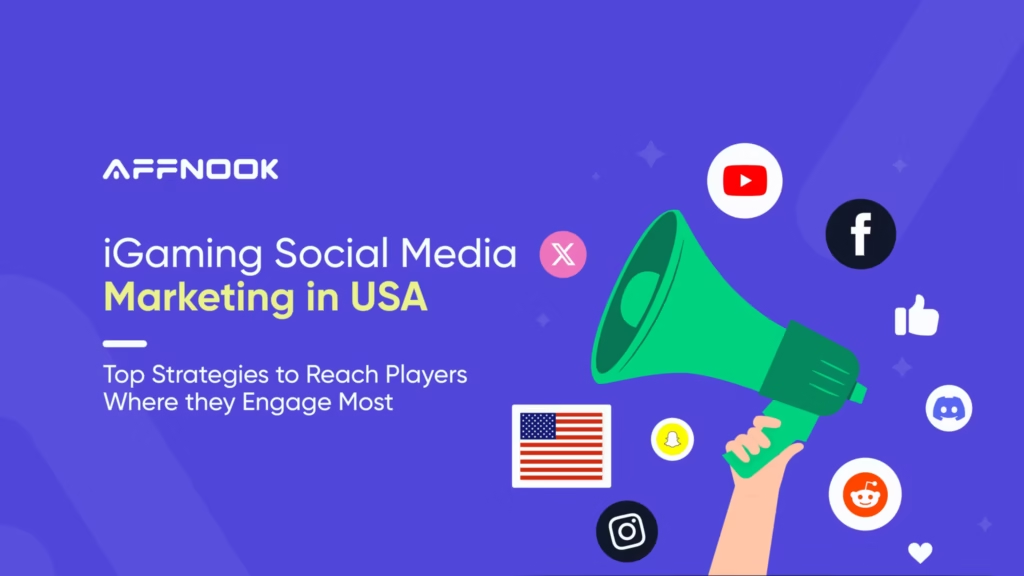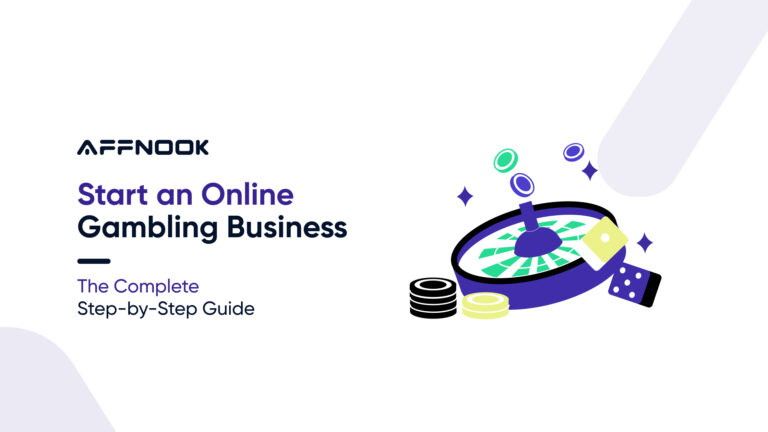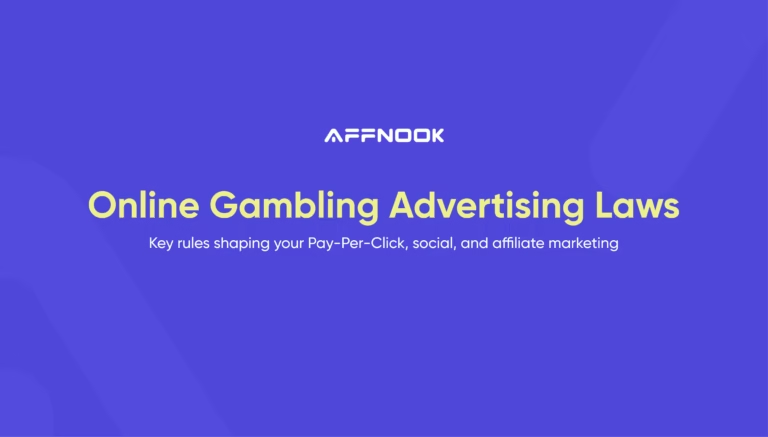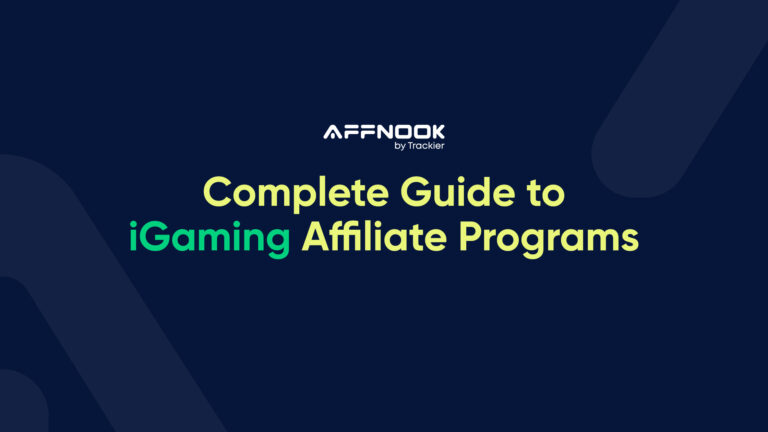The personal is political, a Canadian philosopher once stated.
But it is also commercial.
And that is exactly why social media is the site of great marketing success across industry, but especially in online gambling.
When people can be their true, authentic selves — in spaces where they feel comfortable (whether in anonymity or otherwise) — they’re more likely to engage with their interests more freely.
Platforms like Meta, Twitter, Reddit and more encourage users to engage with iGaming streamers, brands and game accounts, creatives and ads. And that’s good news for you — because that’s a great place to clock high-intent players.
Amongst the followers of your brand’s and competitors’ accounts (and even likers from non-subscribed accounts), emerge new players for your online casino brand and operation.
But the key aspect herein is — are you making the right use of your social media presence in the American market? What steps should you be taking, and which ones to skip? Continue reading to absorb all this information below.
Reasons for Marketing Online Gambling on Social Channels
Social media platforms are quite harsh when it comes to flagging content and behaviours that don’t align with its rules. This is also why many are afraid of investing heavily in social media.
Moreover, content on social media can often blur the line between personal and professional. The freedom of speech allows for expression in various forms — irrespective of who gets offended. While a positive feature of democracy, this facet makes it hard for businesses to trust these online platforms for reaching the desired outcomes.
However, the situation isn’t so dire.
It’s actually an effective zone of creative marketing, enabling real revenue-based outcomes on an immediate basis.
What’s the ROI like? Take a look.

But beyond simple CAC and ROAS, social platforms offer benefits for operators and brands.
1. Precise Targeting Within State Lines
The map of America is more than simple borders and states. It is a live checkerboard of regulations, especially where online gambling is concerned.
And when you’re trying to connect with players, precision matters more than scale. This is where social media doesn’t just shine, it dominates.
Platforms like Facebook, Instagram, and others don’t just offer reach, but something far more — razor-sharp accuracy in marketing online gambling. You’re not shooting in the dark anymore. Instead, you’re directly speaking into the ears of high-intent users who live in the right state, support the right team, and already spend time engaging with similar content.
In the USA though, the segmentation isn’t limited just to user type. Geography plays a huge role due to regulatory differences between states. This means:
- Geo-targeting is a rule of thumb, and
- Precise audience filtration can make or break ROI.
Here’s how it should work.
Social channels allow you to zero in on potential players only in places where online casino play is legal — New Jersey, Pennsylvania, Michigan — and keep your campaigns clear of risky jurisdictions.
Think of it like this: The player’s scroll is your new casino floor. Are you putting your brand in the right place, in front of the right player, at the right time? If not, your strategy needs a shakeup.
2. Real-time Engagement and Community Building
When it comes to marketing online gambling, you have to remember: sports are not just being watched. They are actively being shared, tweeted about, lived through, memed and bet on. As a power house of cultural soft power, this is especially true in America.
Where does all this happen, you may ask? Right where your next loyal user is spending most of their time: social media.
There’s a difference here in how users spend their time around their betting plays. They’re not quietly sitting around, watching the game. They’re posting hot takes, reacting to big plays, arguing about odds in group chats, and voting in live polls during the game.
And for operators? That’s a jackpot of real-time engagement.
When iGaming brands and operators understand the rhythm and tempo of social media activity well, they can turn every sporting event into a betting bonanza. Think:
- Q&As with sports personalities,
- Up-to-the-second odds drops, or
- Virtual watch parties that bring thousands together around one brand.
It isn’t just a strategy — there are brands that have cracked this format of marketing online gambling. FanDuel and DraftKings hosted live sessions during March Madness and Super Bowl when the entire country was tuned in. The outcome? Views, community and lots of attention (from players).
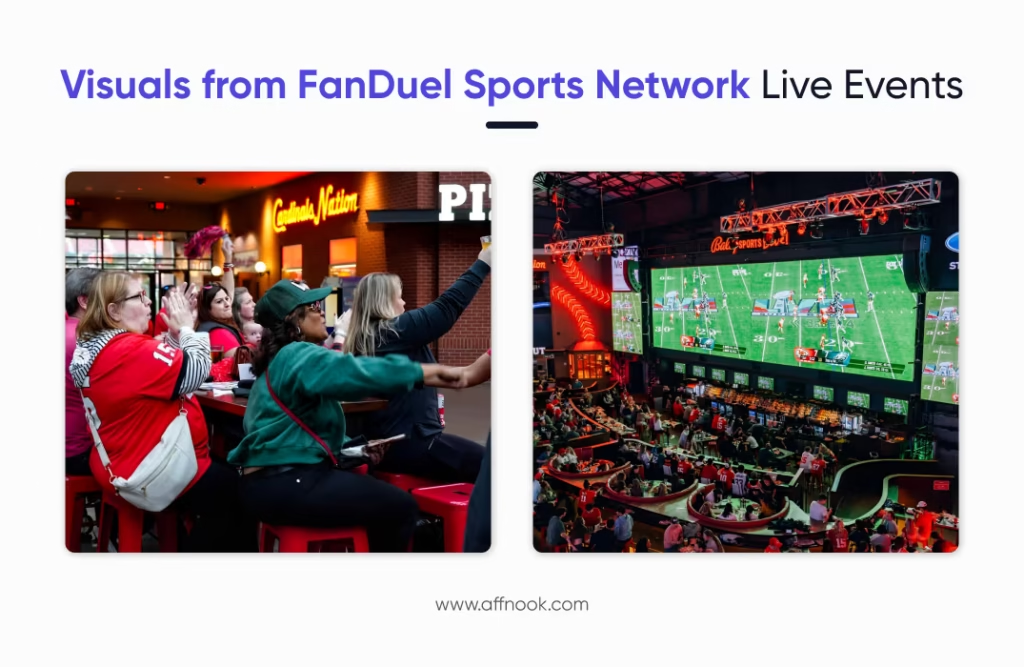
This isn’t unexpected though. Betting is social, by nature, and it always has been. From the bookie on the corner to the friend group pool, it thrives on interaction. Now, social media is just the latest venue.
3. Creating Trust and Brand Credibility
Social media is famously a space for relationship building. When players know you — not just on a surface level but consistently through ongoing interactions — they are able to trust you more. And where else is this more possible than on social media?
In the US, where the legal landscape is still settling and public perception hasn’t fully caught up, the brands that win are the ones that go beyond the bet. They act like real people, showing up to answer questions and put doubts to rest, and most of all, are transparent.
If you’re hiding behind fine print and vague messaging, you’re doing this all wrong.
Trust is the basis of long-term association, something that must be invested in while marketing online gambling.
That’s a strategy BetMGM used. “It’s On” campaign run by the company used Jamie Foxx and Kevin Garnett to tell a story. Instead of relying on star power, the promotion delivered a message of safety, security and regulation. That’s also why it worked.

Use social media to show your face, your values, and your tone of voice. Give something for engaged followers to believe in.
4. Brand Connect through Ambassadors
Some rules are non-negotiable. They earn instant penalties. Some rules, however, are flexible — provided you know what you’re doing.
How does this happen?
Sports legends, local heroes, gaming influencers, and content creators who already hold the attention are your biggest assets in this game. When the message comes from someone they already follow, someone who speaks their language, the brand doesn’t feel like an ad.
Instead, it is a recommendation.
Again, DraftsKings does this well. They enmesh fantasy picks and betting tips into the feeds of respected analysts and sports creators. Then there’s BetMGM, who teamed up with Wayne Gretzky, in their quest of marketing online gambling platforms. It creates that single degree of separation between the people and their hero, through the lightest film of brand relevance.
Traditional iGaming advertising suffers from barriers that creator partnerships are able to overcome: credibility, relatability, and reach — one post at a time. It also pushes the envelope on acquisition.
But where does all this action actually happen? Let’s take a look at the platforms where the online gambling marketing funnel thrives.
Which Mediums Do Americans Prefer?
Some platforms skew younger for obvious reasons, while some are known for hosting older age groups. This is clear from internet chatter about Meta for ‘boomers’ (read: Facebook) and Meta for younger folks (read: Instagram).
While some of this speculation may actually reflect reality, it doesn’t fully hold. Here’s a visual representation of age-wise audiences across the most relevant social mediums.

With clarity on mediums, it is also crucial as a business to ask: do potential players actually spend enough time on these platforms to make them valuable aspects of the marketing funnel?
Of course, here too layman theorization on phone usage and screen time can be common. However, a clinical understanding is crucial before any marketing dollars are shelled out.
Americans have clear favourites, even when it comes to usage. Here are the results from a Pew Centre Study on the matter.

What are the Rules for Marketing Online Gambling on Platforms?
Meta
- Paid ads require previous, written approval from Meta. The documents that operators and brands must submit includes license and jurisdiction details.
- Such ads must only run in states with regulations, targeting only those people who are over 18.
- Specific gambling terms (bet, win and jackpot) are not allowed.
- Organic content is accepted as long it doesn’t directly encourage gambling (through CTAs or offer posts). Overall, minors should be kept at bay at all costs.
Twitter/X
- Only US-domiciled operators can run paid ads, provided they’re licensed and only running ads in regulated states.
- This extends to various forms of iGaming, including fantasy sports, sports betting and casinos.
- Ad text and landing pages should be devoid of links in case of aggregator and affiliate accounts. Age limits are strict.
- Even in organic posting from brand accounts, similar to Meta, direct facilitation is discouraged.
TikTok
- When it comes to marketing online gambling organic and video content, discussions and depictions of gambling are acceptable as long as only 18+ viewers are exposed to it. However, glamorizing betting and link placements are restricted.
- Community enforcement through AI and human actions picks out and removes content on “gambling or gamification”, even from ‘lives’.
- Affiliate links or link-based content (for monetary benefit) should follow the same rules as paid ads (read: licensed operation or brand, age gating and regulated geos).
Snapchat
- Ad banners should be made in such a way that they don’t mislead, promise wins, appeal to minors, or use celebrities to target minors.
- The associated landing page should match the ad in messaging, be accessible only in regulated American states and avoid deceptive links.
- Snapchat restricts brand-created or user-generated gambling content through posts, lenses or filters which enable real-money gambling. Approvals must be taken in advice through SnapKit and age restrictions are mandatory.
- Opt-outs are available for gambling ads. Snapchat also auto-moderates and proactively blocks minors from viewing gambling content.
- Certification is required to run paid ads, including operators and brands directly working with a Reddit sales representative because self-serve methods are limited for online gambling.
- The basic rules all apply here as well: age limitations, targeting only regulated US states, following industry guidelines and having a valid license to operate in targeted states.
- Since there are gambling-related subreddits, any ads you run while marketing online gambling will only show up there.
- Affiliate and other links are discouraged on Reddit. The focus of posting should be to garner discussion and engagement.
- Users can opt-out of gambling-related content on the platform by using the ‘disable’ toggle under “Sensitive Advertising Categories” in their settings.
Youtube
- Since March 2025, logos, URLs, verbal mentions and images of unregulated apps and iGaming websites are restricted.
- Videos promoting online gambling are age gated and require sign-ins from 18+ audiences too.
- Top mastheads for all channels don’t allow gambling ads. Additionally, any content promoting assured wins or returns is subject to removal.
- Organic video and community posting is permitted without any links, branding. However, age limits apply here too and disclaimers must be placed.
Takeaways for Operators and Brands
The rules and audience preferences are now ascertained. But what can iGaming brands and operators running their businesses in American states learn from this?
- Attempt Influencer Promotions on Restrictive Platforms
Online gambling ads are completely banned on Snapchat and TikTok. However, they have an undeniable hold on the people. That’s why streamers, influencers and brand ambassadors can be your winning strategy for marketing online gambling on these sites.
- Real-time Conversions Can Come From Twitter
The very nature of the platform encourages immediate updates, live conversations and instant feedback. Users are extremely active and responsive during interest-specific events. This is why online betting and gambling operators can use this social media platform to engage and convert interested sports fans.
- Understand and Use Accepted Content Styles
It’s clear that policies for gambling and casino content can be quite limiting. But it doesn’t mean there are no options. With creative messaging and unique strategies, you can not only build up communities of engaged and loyal followers, you can create a runway that leads to your commercial offerings.
- Implement State-based Campaigns
Use geo-targeting heavily to ensure your organic social media content and PPC don’t get flagged for running in the wrong states. Create more content for states like New Jersey and Pennsylvania which permit such activity.
- Know the Regulations Across the Country
Before any planning for social channels, you should be aware of where sports betting is legal, and what the guidelines for marketing online gambling in those states are. Only then can you stay ahead of fines and penalties from platforms and regulatory agencies.
Help Centre
How do American iGaming operators ensure social media advertising compliance with state-specific gambling regulations?
Compliance can be ensured through robust geo-targeting on platforms like Meta and Twitter/X. Further seeking out players over 18 and only advertising in regulated American states can save iGaming ad spend from being wasted.
Marketing teams behind campaigns on these platforms should be wary of using terms that are misleading or specifically related to gambling. Finally, responsible gambling features and crucial terms and conditions for users on the platform should be publicized to the maximum level possible so that no mistaken addiction is resulted.
What are the most effective social media platforms for U.S. online casino brands to acquire high-intent players in regulated states like New Jersey or Pennsylvania?
Facebook and Instagram (Meta platforms) undoubtedly remain the most effective outreach platforms to find potential players, due to their wide user base and sophisticated targeting abilities.
Brand experience, gameplay and video gaming should be highlighted while marketing online gambling. Such content can be shared easily through Youtube.
TikTok and Snapchat can fulfil the need for role modelling through influencer partnerships, and reaching a new audience of younger, but 18+ aged players. Irrespective of medium, the key to success is precise identification and targeting of states where online gambling is legal.
Beyond basic compliance, how do leading U.S. sports betting brands build trust and responsible gaming messages into their social media content?
Disclaimers don’t build trust. It is stories that do. Top U.S. sportsbooks go beyond ticking compliance boxes. They turn responsible gaming into content worth watching. Think BetMGM’s “It’s On” — real bettors, real ambassadors, real messages about control and self-awareness.
Why does it work? Because it feels honest. Proactive posts, replies, and community initiatives show users they’re more than a transaction.
What key performance indicators (KPIs) should American gambling operators track to measure the true ROI of social media advertising campaigns?
There are many performance metrics which American brands and operators can keep a check of while marketing online gambling, beyond vanity metrics. Here are the most critical ones:
Share of voice (to check brand strength)
Conversion Rate (sign-ups, deposits)
Social CAC (per channel)
LTV from social players
Net Gaming Revenue
Engagement rate (comments, likes)
How are U.S. iGaming brands adapting their social media tracking and attribution methods to navigate increasing data privacy regulations and the ‘cookieless’ future?
First-party data collection is the easiest way to bypass this concern and remain effective despite ‘cookieless’ times. Another key method is implemented server-based tracking and postback-based data fetching to reduce reliance on browser-enabled data collection (such as the technology Affnook utilizes in real-time, precise attribution).
This allows brands and operators to offer personalized experiences and accurate match-up of medium to traffic while adhering to policies like GDPR and CCPA.
